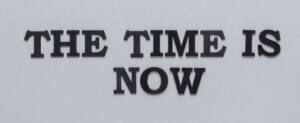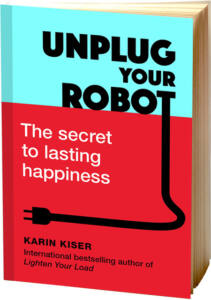We humans seem to be the only species who spends the bulk of our waking hours pondering the past or projecting into the future.
Have you noticed this?
It’s unlikely the oak tree laments over its earlier life as an acorn. It’s unlikely the caterpillar endlessly weighs the future pros and cons of being a butterfly.
When you think about it, time is an illusion. We made it up. Dividing things into days, weeks, months, years, seconds, minutes and hours is a useful way to organize, plan and function moderately well as a society. Ultimately, though, the only thing we can experience is the moment we are in.
Now is all there is.

Even when we worry about the future or remember something from the past, we’re doing that right now, in this very moment. If you feel you don’t have enough time, consider how much time you spend in that future or past pondering place, rather than in the here and now.
Each of us has the same amount of made-up time in the day, and we get to choose how we experience it.
[Sidebar: I was just about to type “we get to choose how we spend it,” and then realized that even the words we use around time reinforce the notion that a) if we don’t use or “spend it,” it will be wasted, and b) time is like money and therefore must be spent or saved.] A stressful thought indeed.
Time is not the problem.
Our to-do list is often the real issue.
Let’s be honest. We’ll never get it all done. And that’s perfectly okay. In fact, it’s fantastic. Having stuff on the list means we still have desires, aspirations, dreams. It’s our attitude toward the to-do list that tends to stress us out, not necessarily the to-do list itself.
Perhaps it’s time to take some of that stuff off the list.

“The only thing that is ultimately real about your journey is the step you’re taking in this moment. That’s all there ever is.” – Eckhart Tolle
“Breathing in, I calm my body. Breathing out, I smile. Dwelling in the present moment I know this is a wonderful moment.” – Thich Nhat Hanh
When you focus on the present moment, you naturally quiet the monkey mind and experience more positive emotions such as happiness, appreciation, harmony, love and joy. Who doesn’t want more of that?
How might you bring more present-moment awareness into your day?
Need some help?
In Chapter Eight of my book Unplug Your Robot, you’ll learn to connect more fully to the present moment. If you don’t already have the book, you can get your copy here.
